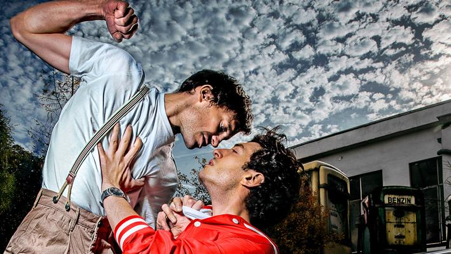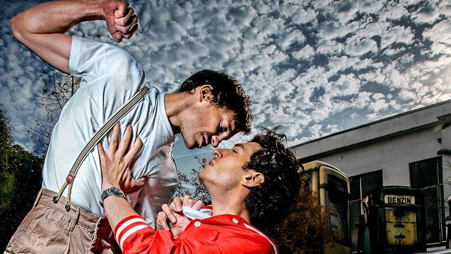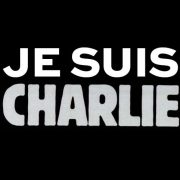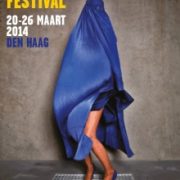Acting Like Men – Freedom of Expression in a Heteronormative World
By Nicola Popovic
Gender roles manifesting the perceptions of what is supposed to be feminine and what is supposed to be masculine, is neither new on stage nor in reality. But for a play to be able to go beyond the parody of the masculine and feminine without ridiculing one or the other may be one of the challenges in contemporary theatre. Small Town Boy playfully overcomes any sort of gender categories and takes us through all layers of human emotions, intimacy and social dynamics, in two hours of high speed performance.
“From an intellectual porn star to romantic gay lovers to a sensitive soldier on active duty… contemporary images of men are in the centre of Falk Richter’s latest project. The limits of male heterosexuality remain particularly disputed today, as spectre of real freedom and equality for all sexes has led to fear and resistance. If men also deny their previous role in the patriarchy and just do whatever they want, then who will continue to protect and preserve Western civilisation?” (Gorky Newsletter; 3. April-May 2014)
“Small Town Boy” actors: Mehmet Ateşçi / Niels Bormann / Lea Draeger / Aleksandar Radenković / Thomas Wodianka; Director: Falk Richter, Stage and costume: Katrin Hoffmann, Music Matthias Grübel, Lights: Carsten Sander, Dramaturgy: Jens Hillje / Daniel Richter
Small town boy introduces intimate perspectives into social dynamics and emotional confusion. Between the gender relational discourse, homo erotic aesthetic and excellent on stage music performance, the play catches the audience’s attention for two uninterrupted hours. Through the powerful presentation by four male and one female actors, conventional gender roles almost dissolve, which allows to recognise specific individual identities, even tough their gender roles is at times clear, at times confusing.
The refreshingly well formulated monologues and dialogues involving a heartbroken 43 years old, a dominant business woman, a Turkish-German and German-Serbian same-sex couple, lovers for a night, family members and political activists, bear a large variety of gender identities that are limited by heteronormative power dynamics. The play highlights the intersectional nature of gender, including: culture and nationality (The challenging coming-out of a young Turkish man in front of his family), age (“I AM 43 NOW!!!!”), social class (the orgasm of a business woman triggered by sensing ethnical and gender related inferiority), religious beliefs (the controversial Christian position on gender diversity) and more. Taking off the masks that cover masculinities, the play poses the question of who honest men want to be and can be in a still existing patriarchy.
Small town boy blurrs the lines between masculinity and femininity, public and private sphere. The private becomes political and the political becomes private when exercising, promoting and protecting LGBT (Lesbian, Gay, Bi- and Transsexual) rights.
The normative frameworks around LGBT rights differ radically from country to country as no other human right. From criminalisation to same sex marriage and anti-discrimination laws, nations take very different stands on how to promote or disqualify the freedom to sexual identity. Anti-gay violence exercised by the state or private actors is often not only accepted but also promoted by the State, even though it is against internationally recognised principles and human rights. In 2010, United Nations Secretary General Ban Ki-moon said that “as men and women of conscience, we reject discrimination in general, and in particular discrimination based on sexual orientation or gender identity.”
The United Nations Office of the High Commissioner of Human Rights outlines the core legal obligations of States with respect to protecting the human rights of LGBT people include obligations to:
- Protect individuals from homophobic and transphobic violence.
- Prevent torture and cruel, inhuman and degrading treatment.
- Repeal laws criminalizing homosexuality.
- Prohibit discrimination based on sexual orientation and gender identity.
- Safeguard freedom of expression, association and peaceful assembly for all LGBT people.
The failure of a large number of countries such as Russia to comply with these obligations needs to be addressed by foreign policy as well as economic decision-making of any self-declared democracy. In a brilliant emotional and escalating monologue, Thomas Wodianka, one of the actors, formulates a pamphlet to hold German and international stakeholders accountable for the promotion and protection of LBGT rights, the responsibility to protect all individuals living in the state territory to be free from violence, discrimination as well as from psychological and physical harm.
If art is a socio-political reflection of individual perceptions expressed through different concepts of beauty and emotional interpretations, Small town boy truly is a piece of art that focuses on maybe the most widely and controversially debated human right.
“Small Town Boy” in the Gorky theatre: http://www.gorki.de/spielplan/small-town-boy/
Human Rights Council resolution 17/19 on human rights, sexual orientation and gender identity: (A/HRC/RES/17/19)
The facts of LGBT rights in Russia: http://www.globalequality.org/newsroom/latest-news/1-in-the-news/186-the-facts-on-lgbt-rights-in-russia







